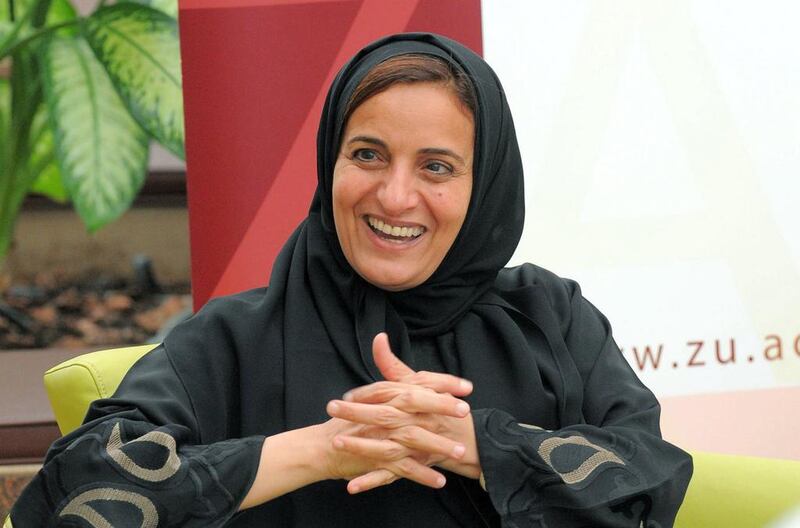Thank you for this article Sheikha Lubna hails UAE as role model in empowering women, August 28). Sheikha Lubna Al Qasimi is truly an exemplary representative of the Emirati people. She demonstrated that she was a "class act" when she met a group of US Arabic linguists studying the Gulf dialect in a customised programme designed and conducted by a unit of UAE University at its main campus in Al Ain during the autumn of 1995 (I was the tour director/ escort/ liaison for that group and attended all the sessions at UAEU).
As a friend of a faculty member at UAEU involved in this programme, she met the group along with that lecturer. She was a charming, informed, articulate and insightful commentator on the social and cultural changes under way in the Emirates. Her observations about the likely evolution and character of future generations of Emiratis have proven prescient.
Stephen H Franke, US
UAE can deal with falling oil prices
Despite oil accounting for less than 3 per cent of its GDP, Dubai will be somewhat affected by lower oil prices but it will weather the storm better than other economies (The belts won't get looser any time soon, August 29). We've seen thousands of layoffs from the international oil and service companies such as Baker Hughes, Slumberger and Haliburton as they cut costs in line with falling revenues.
It’s estimated that the decommissioning of each rig affects 200 families. When you remove labour, you remove disposable income. Ninety per cent of Saudi Arabia’s revenue is dependent on oil, so too are many of the Opec members.
Venezuela is on the brink of civil unrest as grocery stores run dry. Abu Dhabi with 3 million barrels per day is highly dependent on oil revenues, although it’s diversifying the economy. At the same time the government has done very well by setting aside part of the petro-dollars for a “rainy day”.
Randall Mohammed, Dubai
It’s advantage business class
In reference to the editorial Economy class blues (August 28), economy-class passengers are treated as such. Airlines consider this class a burden.
Most money is made from their business and first-class travellers. An airline would make more money if first-class was full than it would from economy being fully booked. Hence, they don’t really care if a passenger is comfortable or not. They don’t put much effort into providing good service.
John Paravalos, Dubai
I am not condoning the alleged attack on Ahmad Barghouthy, the Emirates passenger, but he should not have reclined his seat before take-off.
Some people are so selfish that they keep their seats reclined even during food service. This is not acceptable. A bit of common courtesy to fellow passengers and following the rules does wonders.
Emma Schlegel, Dubai
We should act like civilised human beings. There’s no excuse for fights breaking out, however bad the seats may be.
Ben Adamson, Dubai
A country worth living in
One of the main reasons why I love this country is because it is so tolerant towards other religions (United against divisive ideas, August 27). I am from India, which is the biggest democracy in the world. Yet its society has sectarian undercurrents. Communal violence is common in almost every state. Thousands of Indians who live here should take a lesson from this country so that when they and their children return to India, they can teach others how to live peacefully in society. This is the only formula for happiness.
Baldev Krishna, Sharjah





